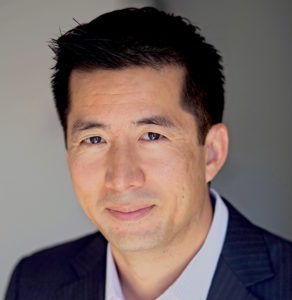“Am I a Pedophile?”: The Horror and Shame of Pedophilic OCD (POCD)

Very few things are considered as morally egregious and devastating as the inappropriate sexual treatment of minors – and for good reasons of course.
The term Pedophilia is used to refer to individuals who experience recurrent and intense sexually arousing fantasies, urges, or behaviors involving sexual activity with a prepubescent child or children. This is naturally of great concern to parents and those who are caretakers to young children, as the psychological effects of these behaviors on kids can be severe and longstanding.

At the same time, many people experience unwanted thoughts, images, and anxieties of a sexual nature involving minors. These people are suffering from OCD, and typically feel deeply afraid and ashamed of themselves, wanting nothing more than for these mental phenomena to stop.
It is essential to highlight that this is a form of OCD, and to differentiate it clearly from actual Pedophilia, in which the individual does not experience distress associated with the thoughts and urges.
So again, to be 100% clear due to the stigma of pedophilic thoughts and the severe consequences of actual pedophilia, individuals with POCD do not pose a threat to minors, and the thoughts they struggle with are not a reflection of dangerous or low moral character.
When struggling with POCD, the thoughts are unwanted and intrusive, which is the hallmark of obsessions in OCD. Typically, the person suffering with these thoughts has a very strong moral compass, and would be extremely unlikely to inflict any harm on anyone, let alone a child. Thus, when any “doubt” and uncertainty comes to mind for such individuals, it can feel all the more shocking, confusing, and taboo – to the point of making one wonder if these pedophilic urges may actually represent real tendencies.
As if the anxiety and mental brain-lock of unwanted thoughts and compulsions aren’t difficult enough, POCD can result in overwhelming feelings of shame and depression as well. This is often due to the fact that, just as with other forms of Harm OCD, the sufferer starts to doubt one’s character as fundamentally good, safe, and well-intended – despite a lifetime of proof.
To make matters worse, due to the extra layers of stigma attached to Pedophilia, people dealing with Pedophilic OCD may be particularly hesitant to discuss the nature of their distress – even with a mental health professional that is sworn to secrecy. For this reason, the silent suffering can be prolonged, and become more severe.
Common examples of POCD obsessions include:
- Anxiety about having any sexual thought or feeling aroused when in the presence of a minor (e.g. when changing a diaper, giving a bath, or playing with a child; inadvertently noticing a minor’s private areas)
- Fears that having previously engaged in consenting sexual exploration with another minor – while as a minor oneself – indicates a current desire to molest or abuse minors now as an adult.
- Worrying that someone you flirted with or felt attracted to is actually under 18 years of age.
Common examples of POCD compulsions include:
- Avoiding being left alone with children, even one’s own
- Avoiding any involvement in the daily care of, or physical contact with, young children e.g. bathing, changing clothes or diapers, hugs
- Avoiding public places where children commonly congregate such as schools, playgrounds, churches, the beach, etc.
- Mentally reviewing to oneself if you were aroused when around a child, or if you said or did anything sexually inappropriate around a child, intentional or otherwise.
- “Confessing” or seeking reassurance from others to confirm whether a sexual thought you had is “normal” or not.
Pedophilic OCD can be uniquely tricky to struggle with if the sufferer has very young children. At no other stage of life (save perhaps for very dependent elderly care) is it not only appropriate, but necessary, to have repeated physical contact with another human being. Wiping (noses, mouths, hands, butts), bathing, lotioning, changing (clothes/diapers), carrying, and hugging are aspects of childcare that most of us accept as mundane. But for someone with OCD, these basic tasks become fraught with uncertainty and fear.
Just as with other forms of OCD, successful therapy entails various components, including:
- Education about the complex nature of obsessions and compulsions
- Applied mindfulness principles and practice to distance sufferers’ thoughts from reality
- Cognitive restructuring to help sufferers loosen their buy in to the faulty nature of obsessive thoughts
- Exposure with Response Prevention to create experiences that definitively disprove obsessions and decrease the need for compulsive reassurance-seeking
Some examples of exposure exercises we might suggest for people dealing with POCD include:
- Watching shows, videos, or viewing images of children
- Intentionally spending time in places where there are likely to be children (parks, malls, beach)
- Spending time with (rather than avoiding) loved ones who are minors
As always, the key to effective exposure is to purposely confront situations that have caused anxiety, and tolerate the discomfort and ambiguity in a graduated, and systematic way. With the right tools and the right help, POCD need not remain a major roadblock to your daily functioning and personal wellbeing.
For more information about different types of Harm OCD and the process of treatment in therapy, continue reading on in our five part series:
Part 1 is a general description of the Harm OCD subtype.
Part 3 addresses Postpartum/Perinatal OCD.
Part 4 discusses effective treatment for Harm OCD.
Part 5 highlights some unique concerns that Harm OCD sufferers should be aware of.

Martin Hsia, Psy.D. is the Clinical Director of CBT SoCal, and specializes in helping people with OCD, Anxiety, and Insomnia in Glendale, CA.

Jacob
I thought I was crazy and I was scared because im not attracted but somehow I think about them that way. then I freak out and try to get rid of the thoughts. im not alone it feels good that im not.